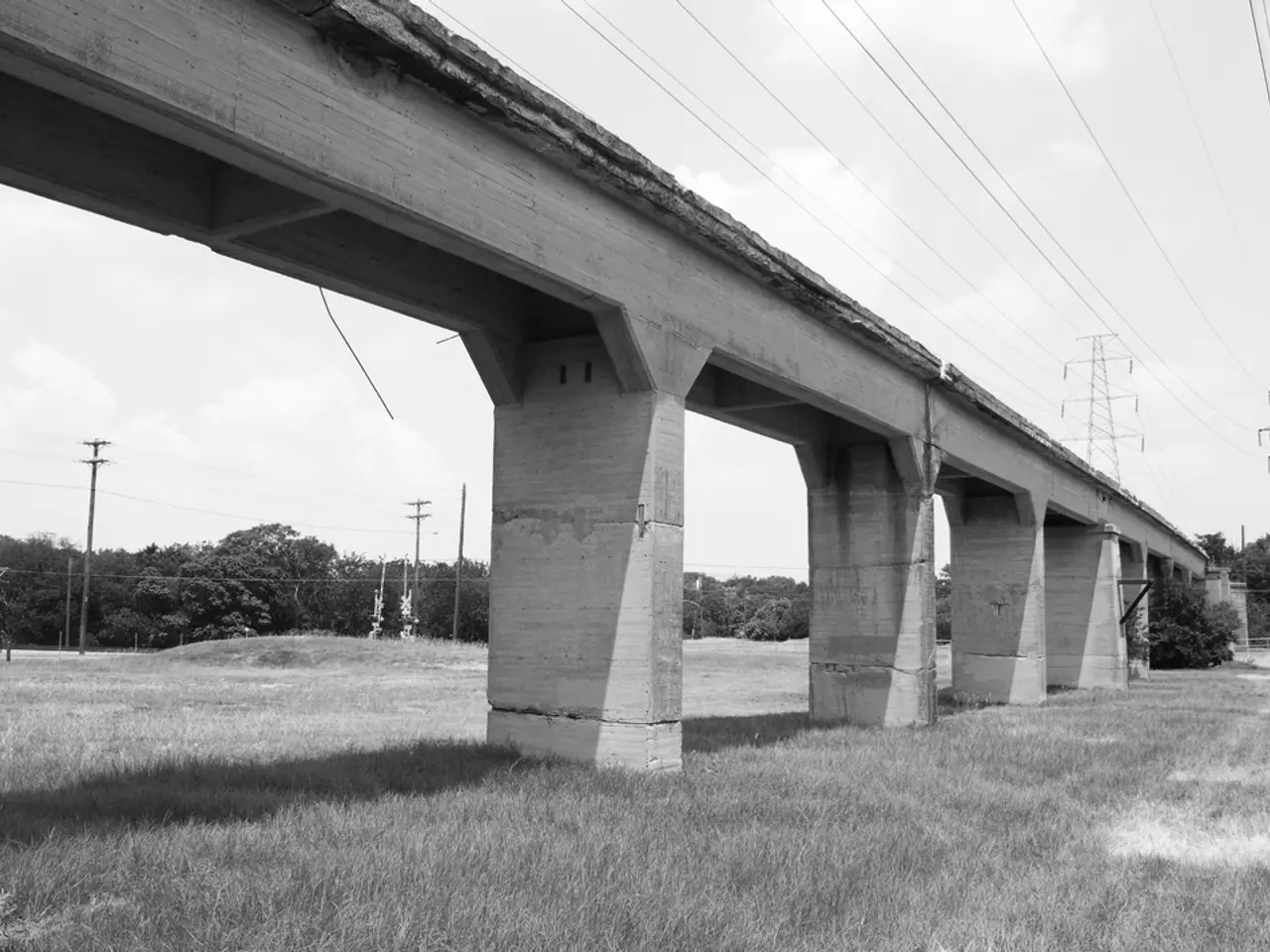COBCO, Al MADA, and CNGR are rapidly constructing a battery facility with a focus on sustainability within a year.
**Morocco Unveils COBCO Sustainable Battery Hub: A Game-Changer in Clean Technology**
In a significant move towards becoming a key player in the clean-technology and green-technology industry, Morocco has launched the COBCO sustainable battery hub. This ambitious project, a partnership between Al Mada, a Moroccan pan-African investment fund, and CNGR Advanced Materials, a leading Chinese battery materials producer, was inaugurated on June 25, 2025, in Jorf Lasfar, Morocco [1][2].
The COBCO facility, spanning over 238 hectares, is designed to recover critical metals such as phosphate, cobalt, and manganese, transforming these resources into strategic battery components locally [1]. The initial investment phase focuses on nickel, manganese, and cobalt-based cathode precursors for electric vehicle batteries and energy storage systems.
The complex will produce key high-tech chemical components for lithium-ion batteries aimed mainly at European and North American markets. The plant will produce 120,000 metric tons of NMC (Nickel-Manganese-Cobalt) precursor cathodes and 60,000 metric tons of LFP (Lithium-Iron-Phosphate) cathodes annually [1].
The COBCO project leverages Morocco’s strategic advantages, including access to competitively priced renewable energy, a prime geographical location, a vast network of free trade agreements, and abundant mineral resources. This strategic positioning makes Morocco a strategic hub for clean-energy battery materials [1].
In line with its commitment to sustainability, COBCO aims to transition to green electricity, targeting 80% by 2025 and full conversion by 2026. The facility is also designed with environmentally responsible processes, incorporating desalination, industrial recycling, and ESG certification strategies [3].
The project is expected to create over 5,000 jobs during the construction phase and 1,800 direct skilled jobs once operational, along with similar indirect positions [1]. Furthermore, COBCO aims to foster Moroccan expertise in battery-related fields through partnerships with local universities and tech firms.
As part of its future plans, COBCO is preparing to join the Carbon Disclosure Project and align with Science Based Targets initiatives. The facility also plans to expand its operations to include critical metal refining and black mass recycling operations with a capacity of 60,000 tons per year [3].
In conclusion, the COBCO battery hub marks a significant step forward in Morocco's push into sustainable battery component manufacturing on an industrial scale. The facility, with its ambitious production capacities and significant investment, is set to position Morocco as a key player in global and regional battery manufacturing and supply chains.
[1] COBCO Launches Sustainable Battery Hub in Morocco, (2025). Retrieved from https://www.cobco.ma/news/cobco-launches-sustainable-battery-hub-in-morocco
[2] Morocco's COBCO Battery Hub: A Game-Changer in Global Battery Manufacturing, (2025). Retrieved from https://www.almadainvestments.ma/news/moroccos-cobco-battery-hub-a-game-changer-in-global-battery-manufacturing
[3] COBCO's Sustainability Strategy: Desalination, Industrial Recycling, and ESG Certification, (2025). Retrieved from https://www.cobco.ma/news/cobcos-sustainability-strategy-desalination-industrial-recycling-and-esg-certification
- The COBCO sustainable battery hub, situated in Morocco, is a collaborative effort between Al Mada and CNGR Advanced Materials, serving as a significant stride for Morocco in the clean-technology and green-technology industry, particularly in the finance and business sectors.
- The launch of this ambitious project marks Morocco's strategic entry into the energy industry, with a focus on producing high-tech chemical components for lithium-ion batteries, catering to European and North American markets.
- In alignment with sustainable-living principles, COBCO aims to power 80% of its operations with green electricity by 2025, and achieve full conversion by 2026, also adopting environmentally responsible processes such as desalination, industrial recycling, and ESG certification strategies.
- The COBCO battery hub is expected to have a substantial impact on the Moroccan lifestyle and home-and-garden sector, creating over 5,000 jobs during construction and 1,800 direct, skilled jobs once operational, while also fostering local expertise in battery-related fields.




